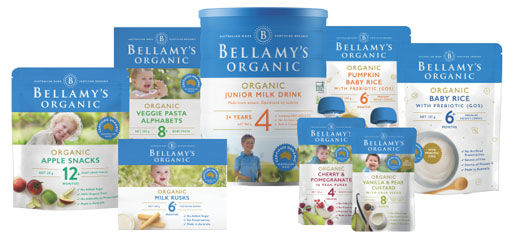10 tips on how to boost your child’s immunity during Covid19

Boosting immunity is something that is on every parent’s mind right now. While there is no definitive research published on nutrients and the novel COVID-19 virus, there is a substantial amount of evidence that supports micronutrient (vitamin and mineral) adequacy for optimal immune function. In addition to nutrition, optimising gut health, adequate sleep, and reducing stress to help protect your little one from infections.
- Reduce stress
It’s normal to be feeling a little anxious, possibly stressed over the current COVID-19 situation. Don’t forget that your little ones may be too. They overhear everything and pick up on your stress levels also.
Acute stress can not only lower immune function but can also increase inflammatory cytokines. Studies undertaken on children with high levels of early life stress show lifelong alterations in immune dysregulation and markers of inflammation.1
Do what you can to reduce your stress and, in turn, your children’s stress. I suggest limiting unnecessary news, doing activities that make you laugh and have lots of time for cuddles.
- Get enough sleep
Adequate sleep assists not only in rest and recovery but also strengthens immune function.2
Melatonin, a hormone secreted by the pineal gland which is responsible for the tired feeling people experience before sleep, is thought to play a protective role against COVID-19.3 Fortunately, pregnant women (especially in the third trimester) and babies have naturally high melatonin levels. Melatonin acts as an anti-inflammatory and has immunomodulating effects and has been proposed as a safe adjunct treatment for COVID-19 induced pneumonia, acute lung injury, and acute respiratory distress syndrome.
Limit blue light exposure from screens plus stick to a bedtime routine to ensure your child is getting enough restorative sleep to reap the benefits of naturally produced melatonin and strengthen your child’s immune system.
- Ensure adequate vitamin A intake
Vitamin A is essential for mucous membrane integrity.4 Mucous membranes are what line the nose, oral cavity, throat, and gastrointestinal tract. These form the first line of immune defence against viral pathogens. Vitamin A is essential for immune regulation, including regulation of natural killer cells, inflammatory processes, has antimicrobial effects, antioxidant actions as well as playing a role in adaptive immunity (antibody response).
Two types of vitamin A can be obtained through foods and supplements; beta-carotene (provitamin A) and retinol (preformed vitamin A). Retinol is the form that exerts immune supportive actions. Beta-carotene can be converted to retinol; the conversion can be slow and limited.
Vitamin A-rich foods include;
Retinol containing– organic dairy products (including Bellamy’s Organic Toddler Milk), animal livers, egg yolks, cod liver oil, fatty fish like herring or salmon.
Beta-carotene containing– pumpkin, carrots, spinach, rockmelon, apricots, mango, and tomatoes.
Being a fat-soluble vitamin, vitamin A is best absorbed when consumed with a fat source. Think whole fat organic dairy, extra virgin olive oil, and egg yolks.
- Support gut health
During the first 1000 days of life, your baby’s gut microbiota or “microbiome” is developing. How your child was born, how they are fed, antibiotic exposures (including those in food supply), and many other factors impact their microbiome, and how their immune system matures.5
Being a mucosal membrane, the gut acts as an anti-infective barrier.6 In addition to this, the gut hosts the body’s largest population of immune cells, and the microbiota stimulates both innate (first line) and adaptive (immune memory) responses.
You can support your child’s developing gut and immune health by providing them with a variety of foods, including fruits, vegetables, whole grains, legumes (e.g., lentils and beans) and foods with added prebiotics.5 These foods ensure your child’s gut health is well supported.
Prebiotics, such as galactooligosaccharides (GOS), and fructooligosaccharides (FOS), helps probiotic (good bacteria) to thrive. GOS and FOS support the predominance of Lactobacillus and Bifidobacterium species in the gut, which are key regulators of gut mediated immunity.7 These two probiotic species modulate gut mediated immune functions by stimulating the gut associated lymphoid tissue (GALT), the largest immune organ in the body.8 GOS has direct antimicrobial effects again bacterial pathogens, by blocking adhesion on intestinal mucosal membranes.7 GOS and FOS, also exert effects on the intestinal barrier and support short chain fatty acid production, which in turn supports the expression of immune system genes.7
Bellamy’s Organic Toddler Milk has added GOS, and Bellamy’s Organic Junior Milk has GOS and FOS to support your child’s gut health and immunity.
- Eat an abundance of vegetables and fruit.
Fruits and vegetables provide an abundance of essential nutrients. Vitamin C is a critical nutrient for optimal immunity.
Vitamin C accumulates in phagocytic cells, immune cells that eat invading pathogens. Vitamin C also plays a role in cleaning up at the site of infection and reduces potential tissue damage.9
Eating a diet rich in fruits and vegetables will supply adequate vitamin C to support your immune system. The fresher the foods, the better, as being a water-soluble vitamin, levels decline in foods each hour after picking. My top pick for vitamin C rich foods includes all berries, mango, cherry, kiwifruit, pineapple, and vegetables such as sweet potato, broccoli, spinach, and cauliflower.
During time of stress and when fighting off an infection, the bodies requirement for vitamin C increases. Getting your little one to eat enough vitamin C rich foods day-to-day is hard, particularly if they are fussy. Bellamy’s Organic Toddler Milk provides 50% of the recommended daily intake per serve which can help your child meet their nutritional needs to support optimal immune function.
- Avoid Added Sugars
Humans used to have the ability to make our own vitamin C. Through our evolution, we have lost the ability to synthesise it, and vitamin C must be obtained through food.
Glucose is structurally similar to vitamin C and uses the same transport channel into our cells. When your child consumes added sugars (table sugar, sucrose or dextrose), their blood glucose levels rise. This increase in glucose concentration competes with optimal vitamin C absorption, which interferes with immune cell vitamin C accumulation. Be sure to read labels and avoid added sugars.
- Get your daily dose of vitamin D exposure or sufficient dietary intake
Vitamin D is a fat-soluble vitamin that can be obtained from sunlight and food sources including fatty fish, egg yolks, dairy products as well as fortified foods.
Vitamin D exerts antiviral and immunoregulatory actions.10 Vitamin D enhances cellular immunity, which in part reduces the inflammatory cytokine storm produced by the innate immune system.11 A Cochrane systemic review,12 reported that there were “several studies that reported an association between vitamin D deficiency and infections among children” below the age of five years.
Breast milk provides a complex of essential nutrients as well as a whole host of immune-boosting benefits; it is, unfortunately, a poor source of vitamin D. The America Academy of Paediatrics recommended that all exclusively breastfed babies be supplemented with 400iu of vitamin D daily. In Australia, mainly because of the abundance of sunshine, the recommendations for vitamin D supplementation only apply for exclusively breastfed infants with darker skin or of veiled mothers. Given the current situation of indoor confinement and lack of sun exposure, vitamin D supplementation for exclusively breastfed babies may be indicated.
Ensuring optimal vitamin D levels is important throughout childhood to help support the immune system and prevent infections. Bellamy’s Organic Toddler Milk is fortified with vitamin D to help boost your child’s daily intake and prevent deficiency.
- Ensure adequate intake of omega 3 fatty acids
Omega 3 fatty acids are best known for their role in brain and eye development. Omega 3 fatty acid, DHA, and EPA plus their metabolites also have an essential role in immune cell and inflammation regulation. 13
Dietary sources of omega 3 fatty acids include: olive oil, chia seeds, flaxseeds, walnuts, and organic soybeans.
Dietary Source of elongated omega 3 fatty acids, DHA + EPA include Fatty fish such as salmon, sardines and herring, organic eggs, as well as fortified foods such as Bellamy’s Organic Toddler Milk and Ready-To-Serve Yogurt’s.
Be sure to provide your baby with foods rich in omega 3 fatty acids, DHA, and EPA to support optimal immune cell function.
- Support optimal zinc status
Zinc is essential for mucosal membrane integrity of the respiratory tract, (often the first line of immune defense), immune cell production and function, has antimicrobial effects, a role in inflammation regulation as well as antioxidant functions. Deficiency of zinc can predispose your child to an increased risk of infections. 4
The body does not store zinc,14 so zinc-rich foods should be consumed daily from 6 months. These include:
- Red meat (preferably organic)
- Canned oysters (safer than fresh, because of the risk of food poisoning)
- Organic dairy products including Bellamy’s Organic Toddler Milk
- Legume (e.g. well-cooked lentils and chickpeas)
- Organic eggs
- Nuts + seed butter (if not allergic)
- Feed your baby iron-rich foods
Iron is a critical nutrient for immune cell function.4 Iron assists in the maintenance of the mucosal membranes (the physical barrier), the proliferation of immune cells, and regulation of inflammation. Iron deficient children suffer from more respiratory tract infections and take longer to recover when compared to iron sufficient children.4
Iron-rich foods are essential to support the growth, development, and immune function of your child. When introducing solids, it is necessary to begin with iron-rich foods first. Iron rich foods include darker meats, dark green leafy vegetables, eggs, lentils, and iron-fortified grains such as Bellamy’s Organic Baby Rice and from 7+ months Brown Rice Pasta Stars. Because of the rapid rate of growth, iron requirements remain high proportionate to their body weight through the first three years of life.
There is a multitude of nutrients involved in supporting your child’s immune system, more of which can be easily obtained in a sufficient amount through a healthy balanced diet. No one nutrient is more important than another, in the absence of deficiency. Bellamy’s Organic Toddler Milk can boost your child’s daily intake of essential nutrients, support their developing gut microbiome which in turn supports optimal immune system function.
Featured post
-
05 Diet Plans That Are Good For Your Health
31/07/2022
-
Best Times to Sleep for Adults & Children
01/06/2022








